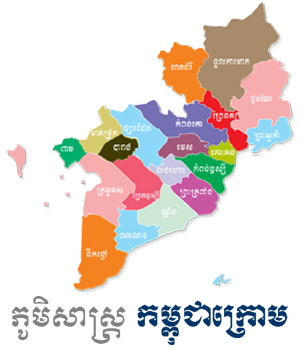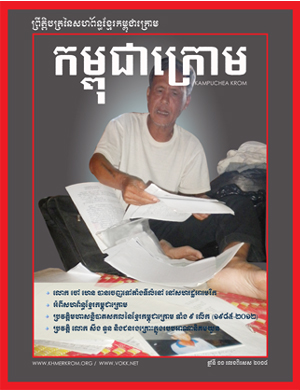From 22 April to 5 May 2017, the Unrepresented Nations and Peoples Organization (UNPO), represented by several of its Members as well as its Secretariat, takes part in the 2017 United Nations Permanent Forum on Indigenous Issues (UNPFII), taking place in Turtle Bay, New York City. During two weeks, the UNPO attends sessions of the Forum and a number of side-events organised by indigenous organisations from all around the world. This is an opportunity to raise awareness of UNPO Members and their struggles, facilitate their participation in the Forum and network with UN officials and other indigenous groups at the UN Headquarters.
The UNPFII is a high-level advisory body to the United Nations Economic and Social Council (ECOSOC). Established in 2000, it aims at providing expert advice and recommendations on indigenous issues to the ECOSOC and UN bodies, to raise awareness and promote activities related to indigenous issues within the UN system and to prepare and disseminate information on indigenous issues.
Check this page regularly to get updates about UNPO’s participation in the Forum and follow us on social media using the hashtag #UNPO4Indigenous!

4 May 2017
During the afternoon session of the Forum, focusing on the future work of the UNPFII, UNPO Vice-president Mr Abdirahman Mahdi delivered a speech on behalf of the UNPO and the Nonviolent Radical Party, Transnational and Transparty. The statement is available here.
1 May 2017
The second week of the Forum started off with an interactive dialogue with the Special Rapporteur on the rights of indigenous peoples with regard to indigenous human rights defenders. Ms Connie Hang from the Khmer Kampuchea-Krom Federation’s (KKF) Youth Committee asked the Special Rapporteur to implement a conflict resolution mechanism that would facilitate discussion with indigenous peoples instead of having member states deny the identity of indigenous peoples. She further asked for more funds to be donated to indigenous peoples in the context of the climate investment funds, stating that the Khmer Krom people have not seen any funds that would help preserve and protect their natural environment.
Ms Victoria Tauli-Corpuz responded positively to the points made as she stated that indigenous peoples often find themselves trapped in conflicts between governments and rebels, for which reason it is important that conflict resolution and peacebuilding mechanisms be implemented that include dialogue with indigenous peoples. She further stressed the importance of ensuring that indigenous peoples have access to funds such as the climate investment funds, which would empower indigenous peoples to take action themselves and to contribute to mitigating, as well as adapting to climate change. The Special Rapporteur asked the KKF to submit additional information on how they think climate investment funds can better protect indigenous peoples.
After the day spent at the United Nations, members of the UNPO Secretariat Ms Charlotte Andrews and Mr Markus Buderath hosted an advocacy workshop for the KKF Youth Committee. The aim of the workshop was to train the youth on three key issues in advocacy and strategy: (a) what institutions and legal mechanisms to make use of, as well as how to use them; (b) how to present their case in a diplomatic fashion and how and why to issue direct denmands, as well as (c) how to use social media to their advantage.

29 April 2017
Today, Member of UNPO Secretariat Mr Markus Buderath travelled to Philadelphia to partake in the 2017 annual conference of the Khmer Kampuchea-Krom Federation. Similar to the events in New York, this year’s special theme of the KKF conferene was the 10th anniversary of the Declaration on the Rights of Indigenous Peoples, as well as the importance of indigneous youth. As such, a special tribute was given to the KKF Youth Committee as they represent the KKF at the UNPFII2017 in New York, raising awareness about the cause of the Khmer Krom People and networking with other indigenous peoples and NGOs.
Mr Giap Tran from the Khmer Kampuchae-Krom Federation spoke about KKF’s success in terms of raising awareness and promoting the cause of the Khmer Krom people, marked by increasing interest of international organisations to work with KKF, as well as by increasing receptiveness of (supra)national institutions such as the European Union and the United States Commission on International Religious Freedom. As recently as February 2017, the latter published a report that affirms that religious persecution persists in Vietnam.
UNPO Representative Mr Markus Buderath spoke about the successful 16-year history of KKF membership at UNPO, the remaining challenges for the Khmer Krom and for all indigenous peoples and how UNPO and KKF will continue to work together to make the voices of the Khmer Krom People heard and to advocate for their cause at the state, national and international level.
Ms Sothy Kien, director of the Youth Committee, futher praised the importance of the KKF Youth for the organization’s future. The Youth contributes significantly to the organization’s success as they raise awareness through social media and personal networks, each coming from differnet regions in North America. Ms Kien also pointed to the fact that the KKF Youth Committee consists largely of women, an important step in the development of the organisation.
28 April 2017
To close out the first week of UNPFII, agenda item 11, titled “Follow-up to the outcome document of the World Conference on Indigenous Peoples”, was discussed during the morning session. Although registered to speak, our members from the Chittagong Hill Tracts, Ogaden People’s Rights Organisation, Khmer Kampuchea-Krom Federation (KKF) and the World Sindhi Congress were not given an opportunity to speak due to limited time.
The UNPO team attended two Side-Events throughout the day. The first event, titled “Mainstreaming Indigenous peoples rights in the SDGs including in the High Level Political Forum (HLPF) of the 2030 Agenda on Sustainable Development” was organised by the Indigenous Peoples Major Group for the SDGs, ILO, IWGIA, Asia Indigenous Peoples Pact (AIPP) and the Forest Peoples Programme (FPP). UNPO Vice-President Mr. Abdirahman Madhi participated in this event shortly before attending the second event, titled “Peace building and well-being processes to contribute to the eradication of violence against Indigenous women”, hosted by UN Women, IIWF/FIMI and AIPP.
27 April 2017
During today’s morning session, the discussion on agenda item 4 was continued. Mr Bidhayak Chakma and Mr Bablu Chakma from the Chittagong Hill Tracts each delivered a statement denouncing the human rights violations, arbitarary detentions and torture that the Jumma people face in Bangladesh, calling for the implementation of the Chittagong Hill Tracts Peace Accord. Mr Kanat from the World Uyghur Congress took the floor to address the worsening religious persecution against Uyghurs in East Turkestan, where the Chinese authorities are increasingly implementing laws to criminalize traditional Muslim practices. Meanwhile, the youth delegation of the Khmer Kampuchea-Krom Federation stated that it is “time to move forward” and to ensure the implementation of the UN Declaration on the Rights of Indigenous Peoples, as well as to make sure that all indigenous peoples are protected under this declaration.
Following the morning session, the UNPO team again attended a number of Side-Events, including an event hosted by the government of the Yamal-Nenets Autonomous District of the Russian Federation and titled “Social and corporate responsibility of companies that deal with industrial activities in the territorities of indigenous peoples”, as well as an event organized by the government of Mexico City and SEDEREC (“Secretary of Rural Development and Equality for the Communities”, translated from Spanish) titled “The new Constititution of Mexico City and the inclusion of the Delcaration on the Rights of Indigenous peoples” (translated from Spanish). During the latter, the UNPO team met with UN Special Rapporteur on the Rights of Indigenous Peoples, Ms Victoria Tauli-Corpuz.
The late afternoon session was marked by a follow-up on the recommendations of the Permanent Forum, namely the empowerment of indigenous women and indigenous youth.
26 April 2017
Today’s discussion centered on agenda item 4, namely “Implementation of the six mandated areas of the Permanent Forum with reference to the United Nations Declaration on the Rights of Indigenous Peoples”. Mr Eskender Bariev from the Mejlis of Crimean Tatar People denounced the repression against Crimean Tatars and called for the release of political prisonors, such as Ruslan Zeytullaev, a Crimean Tatar activist who has just been sentenced to 12 years in prison by the Russian government.
Throughout the afternoon, the UNPO team attended a number of Side-Events, including an event organised by the ILO. Titled “Indigenous Peoples and Climate Change: From Victims to Change Agents through Decent Work”, this event presented their recently published report on promoting indigenous peoples’ role in climate change mitigation processes. UNPO Vice-President Mr Abdirahman Mahdi voiced his concern about the neglect of certain ecosystems, such as those inhabited by nomadic peoples in Ethiopia, which are deteriorating rapidly amidst worsening droughts. Member of the UNPO Secretariat Mr Markus Buderath further pointed to the fact that most indigenous peoples are not alien to technology and that mechanisms must be implemented to strengthen communication between indigenous peoples and political decision-making bodies, as well as to ensure equal dialogue.
From 3-6 p.m., the President of the 61st session of the General Assembly with his advisors conducted consultations on the participation of indigenous peoples’ representatives and institutions in relevant United Nations meetings on issues affecting them. Mr Abdirahman Madhi took the floor to stress the importance of facilitating indigenous peoples’ participation at the UN Permanent Forum on Indingeous Issues, as it is the only official platform where indigenous peoples are given a legitimate voice. As such, their participation must be facitilited and their role enhanced.
25 April 2017
The second day of the UNPFII16 started off with a high-level event of the General Assembly to mark the tenth anniversary of the Declaration on the Rights of Indigenous Peoples.
From 1-3 pm, the UNPO team attended a Side-Event organized by UNPO Member the Mejlis of the Crimean Tatar People. The room was full as Ms Gayana Yuksel, member of Mejlis and media executive, as well as MrSkender Variiev, member of Mejlis and human rights defender, and others presented on the continuing repression and human rights violations by the occupying authorities.
During the late afternoon session of the UNPFII, yesterday’s discussion of agenda item 8 was continued. Vice President of UNPO Mr Abdirahman Mahdi from the Ogaden People’s Rights Organisation spoke about the ongoing humanitarian crisis, drought and cholera epidemic that Ogadeni people are facing in Ethiopia. UNPO Member Dr Saghir Shaikh from the World Sindhi Congress spoke about Pakistan’s continous dismissal of human rights and indigenous rights, as well as mega development projects such as the China-Pakistan Economic Corridor (CPEC), which is advanced without free, prior and informed consent of the indigenous Sindhi people.
24 April 2017
Today was the first day of the 16th session of the UN Permanent Forum on Indigenous Issues. As per usual, the opening session began with a ceremonial sound, a traditional conch played by a woman of the Charrúa people. Subsequently, a number of important decisions regarding nominations and the agenda were made, including the appointment of the Chair of the UNPFII, Ms Mariam Wallet Aboubakrine, a woman from the Tuareg people. Throughout the session, many people expressed their full support to this nomination.
The early afternoon was reserved for Side-Events, including an event by one of our members, the Mejlis of Crimean Tatar People. Titled “Crimean Tatars in 2017: Keeping the Dream Alive”, the event brought to the surface the precarious situation that Crimean Tatars are facing since the annexation of Crimea by the Russian Federation.
During the late afternooon session, government representatives, international institutions such as the ILO and UN Women, as well as indigenous peoples organisations (IPOs) and other participants at the Forum discussed the measures taken to implement the Declaration on the Rights of Indigenous Peoples. Notably, indigenous peoples from various places voiced their concern about the lack of enforcement of the UNDRIP in a number of important areas.
23 April 2017
The second day of the Global Indigenous Peoples Caucus Consultation Meeting began with a round of statements by indigenous peoples on any of the six mandated areas of the UN Permanent Forum: health; education; human rights; economic and social development. Throughout this discussion, indigenous peoples focused on failures or successes that they had in the past, as well as on mechanisms and strategies to adopt to ensure the enforcement of the Declaration on the Rights of Indigenous Peoples. As such, a major part of the discussion focused on the 2030 Development Goals and how to make sure that indigenous issues will be suffciently included in the agenda.
Members of the Permanent Forum were also there to answer questions about the procedures and rules at the Forum, followed by a discussion on the future of the Permanent Forum and how to ensure better representation of indigenous peoples, not only at the Forum but at the UN Institutions in general. Several nations and peoples voiced their concern that they felt underrepresented and discriminated against at the United Nations.
22 April 2017
UNPO attended the first day of the Global Indigenous Peoples Caucus Consultation Meeting (GIPC). Convened by several Indigenous Peoples Organisations (IPOs) such as the American Indian Law Alliance and the 7th Generation Fund for Indigenous Peoples, this preparatory meeting of indigenous representatives aims at discussing the agenda items that will be covered during the Forum. The aim is for the IPOs to consolidate a common position on the different items before the Forum, in order to give more power to their voice.
After selecting a group of GIPC co-chairs each corresponding to one region of the world, the representatives discussed a series of topics: the empowerment of indigenous women; indigenous youth; health; education; human rights; economic and social development.
Sources: UNPO













